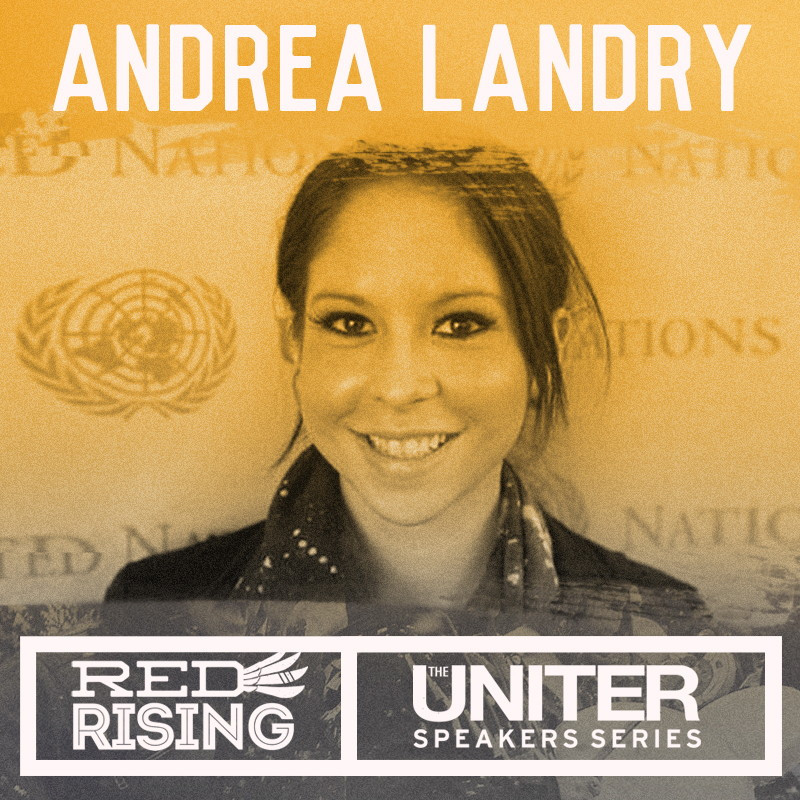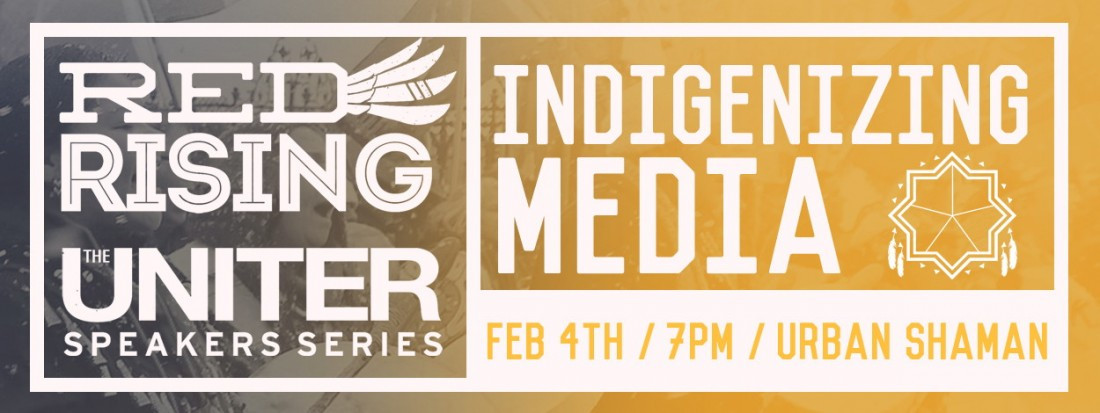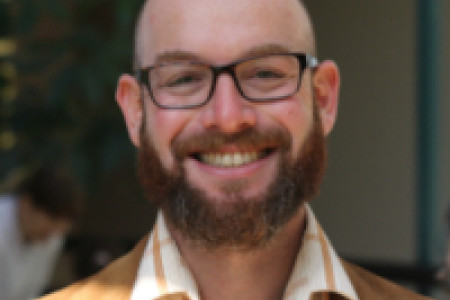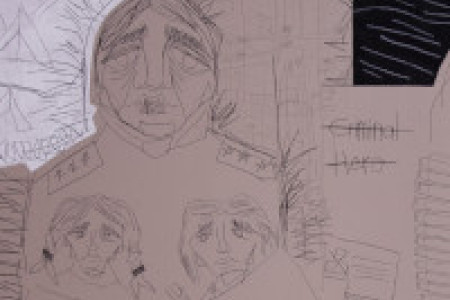Indigenizing Media with Andrea Landry
A Q&A with social justice advocate and Indigenous studies and political science teacher Andrea Landry
Come hear Andrea Landry in person on Thursday at 7 pm at Urban Shaman Contemporary Aboriginal Art Gallery.
We asked some of our speakers for their insight into the discussions we will be having Thursday. Here’s what Indigenous studies and political science teacher Andrea Landry had to say.
Why are you interested in media?
I am more so interested in this reclamation of our own stories as Indigenous peoples. There is this shift where Indigenous peoples are creating and recreating systems which place the truth of who we are and where we come from at the forefront – rather than utilizing the colonizer's system to designate their interpretations of who we are and where we come from. Media to me has to reconnect to what it once was to our people – not necessarily seen and described as media – but seen as stories and our languages describing the lands and territories on which we live on, how our families operated traditionally, and what we can do today to create a healthy, sustainable way of living for our people once again.
“ Media to me has to reconnect to what it once was to our people – not necessarily seen and described as media – but seen as stories… Andrea Landry
Why does this event speak to you?
This event provides the space and opportunity for Indigenous peoples to come together to discuss and self-determine the truths of our people. It will uncover the reality that the foundations of our people are heavily embedded within the land and our own languages – and show that we must continue honoring that by no longer relying on colonial systems to represent us – we must go back to the basics of our foundations. This event will also bring new insights and awarenesses on what new Indigenous based systems in the realm of media would look like – which would embrace the stories of the land and the people and combine it with the truth of our people – void of oppression and the symptoms of colonization.
What are the most important issues surrounding Indigenous representation in the media?
The most important issue surrounding Indigenous representation in the media is recognizing the importance of self-representation, completely neglecting the colonial media system, and no longer filtering our stories and truths through systems which have defaced us for generations. The media was another route to commit social genocide against our people – it’s time to no longer give life to a system that doesn't work for us and to build our own.
What can we learn from projects like Red Rising Magazine?
We can learn from projects like Red Rising Magazine the importance of maintaining self identity and a healthy collective identity – thereby sharing it with the masses. We have become used to the game of colonially processed stories of who we are and where we come from that we continue to share stories the colonial way. Red Rising Magazine is opening the doors for Indigenous peoples to pay homage to how we once shared ourselves – organically and truthfully. “ Red Rising Magazine is opening the doors for Indigenous peoples to pay homage to how we once shared ourselves – organically and truthfully. Andrea Landry
What do we as writers, publications or consumers of media need to stop doing?
Journalists, writers, publications or consumers of media need to recognize the colonial system that they are fighting is also the very same system they are becoming a part of. Our people are fighting a media system which they are also supporting by buying into the colonial fact that people can own or make our stories. Instead – we must begin to follow the path of how our old people did it, where we were simply holders of the stories and they were shared at appropriate times. The truth of Indigenous peoples is that we are living, breathing stories. And if we wanted to honor ourselves in the way that we did long ago – the stories of our lives and the land would not be so easily showcased and spoken – they would be held in high regard as the land and the stories before us.
What are we as writers, publications or consumers of media doing right?
Journalists, writers, publications, and consumers of media are slowly following the path of "allowing" Indigenous peoples to tell their own stories. Yet it should not even have the notion of requiring permission or being "provided space," to share our stories and do our work. It has to reach a point and time where we, as Indigenous peoples, become so authentic with ourselves that we leave colonial systems as a route to share our truths, where we no longer think big media companies are an option for us, and return to the honorable routes of storytelling and lifesharing.
Andrea Landry is Anishinaabe and comes from Pays Plat First Nation in Ontario. She completed her masters in communications and social justice and wrote her thesis on CBC, offering a critical analysis on their coverage of the White Paper, Oka crisis, and Idle No More movement. A former youth executive for the National Association of Friendship and North American Representative of the United Nations Global Indigenous Youth Caucus, Andrea currently lives in Poundmaker Cree Nation where she teaches Indigenous studies and political science at the University of Saskatchewan. She also is a therapist for Thunderchild First Nation and does community work in the areas of grief and recovery and more.







